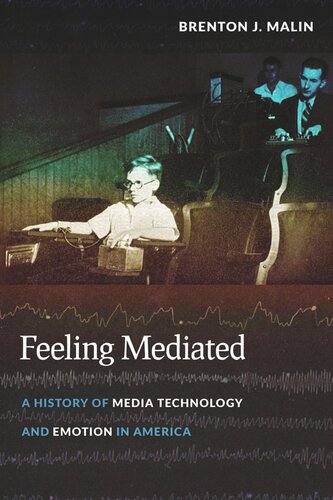

Most ebook files are in PDF format, so you can easily read them using various software such as Foxit Reader or directly on the Google Chrome browser.
Some ebook files are released by publishers in other formats such as .awz, .mobi, .epub, .fb2, etc. You may need to install specific software to read these formats on mobile/PC, such as Calibre.
Please read the tutorial at this link: https://ebookbell.com/faq
We offer FREE conversion to the popular formats you request; however, this may take some time. Therefore, right after payment, please email us, and we will try to provide the service as quickly as possible.
For some exceptional file formats or broken links (if any), please refrain from opening any disputes. Instead, email us first, and we will try to assist within a maximum of 6 hours.
EbookBell Team

4.7
86 reviewsNew technologies, whether text message or telegraph,
inevitably raise questions about emotion. New forms of communication bring with
them both fear and hope, on one hand allowing us deeper emotional connections
and the ability to forge global communities, while on the other prompting
anxieties about isolation and over-stimulation. Feeling
Mediated investigates the larger context of such concerns, considering both
how media technologies intersect with our emotional lives and how our ideas
about these intersections influence how we think about and experience emotion
and technology themselves.
Drawing on extensive archival research, Brenton J. Malin explores
the historical roots of much of our recent understanding of mediated feelings,
showing how earlier ideas about the telegraph, phonograph, radio, motion
pictures, and other once-new technologies continue to inform our contemporary
thinking. With insightful analysis, Feeling
Mediated explores a series of fascinating arguments about technology and
emotion that became especially heated during the early 20th century. These debates, which carried forward and
transformed earlier discussions of technology and emotion, culminated in a set
of ideas that became institutionalized in the structures of American media
production, advertising, social research, and policy, leaving a lasting impact on
our everyday lives.